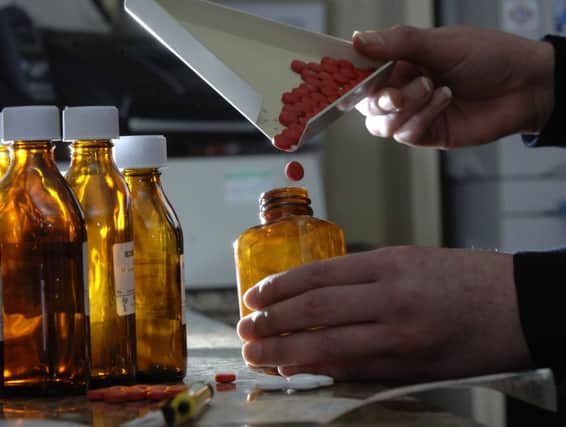Local solutions to a minor illness matter


IN SCOTLAND approximately half the population benefit from access to the national Minor Ailments Service (MAS) which is available through all NHS community pharmacies. The service has been established since 2006 but we are yet to unlock the full potential which could lead to large benefits for patients and the NHS.
We are all aware of the financial pressures on our NHS. A study by the University of Aberdeen has shown that the community pharmacy is the most cost-effective place to treat patients for minor ailments when compared to hospital or GP settings. In fact pharmacy treatment costs the NHS less than half that of a GP consultation. When compared to A&E, community pharmacy management of minor conditions costs just one fifth against a hospital visit. The study also showed that the outcome for patients is similar no matter what sector they are treated in.
Advertisement
Hide AdAdvertisement
Hide AdApproximately 1 in 20 A&E consultations and 1 in 8 GP appointments could have been dealt with by a community pharmacy. Across the country, this signals that a huge amount of work is currently being managed in an inefficient manner. Both A&E and GP services are under great strain and the potential to treat patients in the community pharmacy could free up time and resource for these areas of the health service. Vital to this is making sure patients recognise the professional NHS services available to them in their local neighbourhood.
Recognition will come from developing the service to be the first port of call for all patients accessing the NHS. Currently, MAS is subject to the patient exemption criteria which used to apply to all prescriptions. This means that around half the population cannot register for the service. The Scottish Government recently stated that removing prescription charges had not had a significant effect on the number of prescriptions being issued. Similarly, removing the exemption barrier surrounding MAS is unlikely to cause a massive rise in cost for the Scottish Government.
Another key step to enhancing MAS is to broaden the scope of the conditions that can be treated. Pharmacists have already demonstrated that they can effectively treat urinary tract infections in local pilots and studies. Other initiatives exist where pharmacists supply antibiotics to those at risk from complications if they contract a respiratory tract infection. Increasing the opportunities for patients to access MAS will not only improve the service patients can access but will improve the perception of the community pharmacy as an NHS healthcare provider. Policy makers need to have the will to drive service design to allow the most appropriate professionals to provide patient care. This may herald a change from minor ailments treatment to a common clinical conditions service.
There will be times when the community pharmacy is not the most appropriate place for treatment. In these instances the pharmacy should have referral systems that allow them to make patient appointments in other areas of the NHS.
We also need to recognise the benefit of promoting MAS to the Scottish people. This can come from poster campaigns and television advertisements. In conjunction with this, I believe the community pharmacy sector must play its part. The best champions of the service will be the pharmacy teams working in communities all over Scotland. We can raise awareness with our patients and work with other health care professionals to utilise the service to its full potential. In building knowledge of MAS, patients will be empowered to make informed decisions on where they will be best treated.
The treatment of minor ailments and common clinical conditions will continue to present challenges while the status quo remains. I believe the improvements discussed are the right thing for patient care and should be pursued by policy makers. Pressure on other areas of the NHS may mean that economic drivers demand it.
• Harry McQuillan is chief executive of Community Pharmacy Scotland www.communitypharmacyscotland.org.uk